
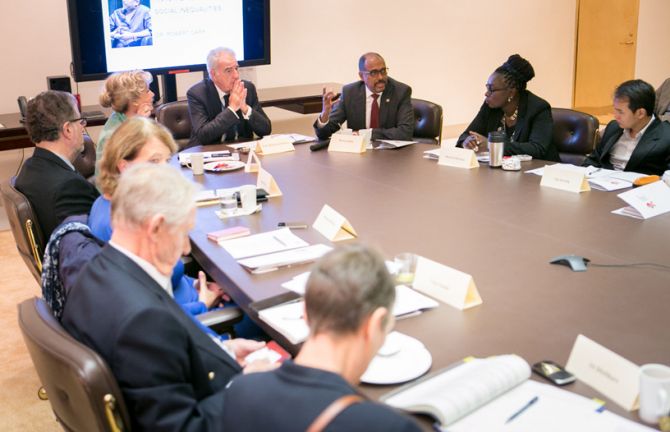
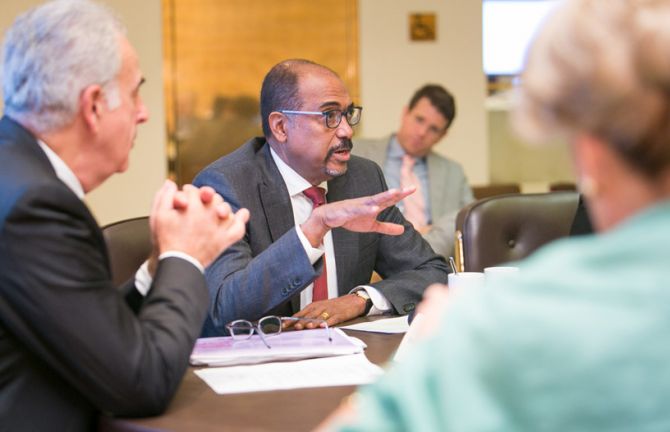
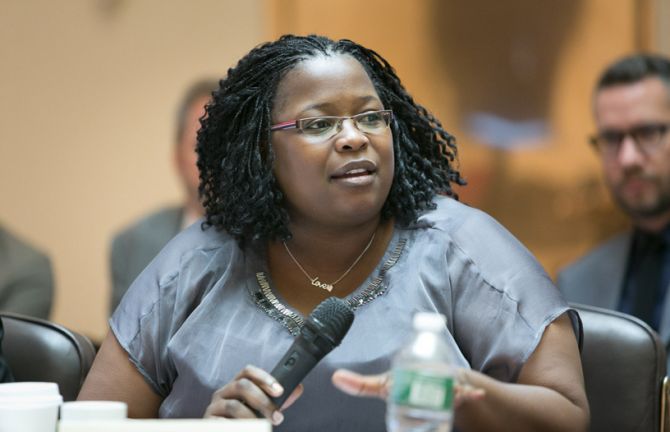
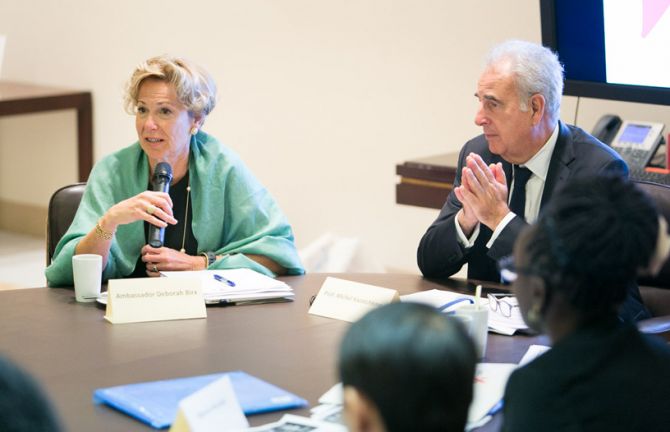
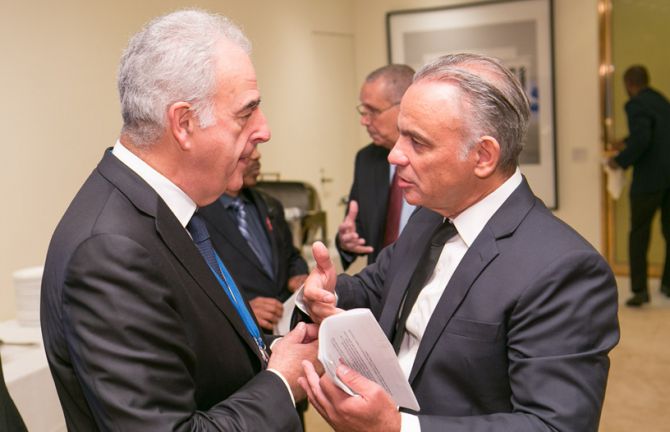
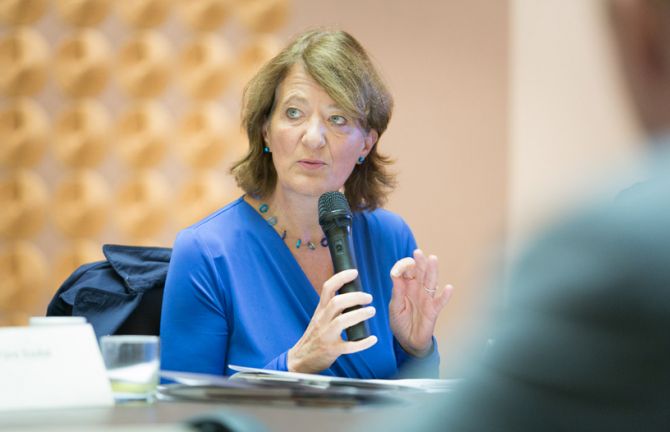
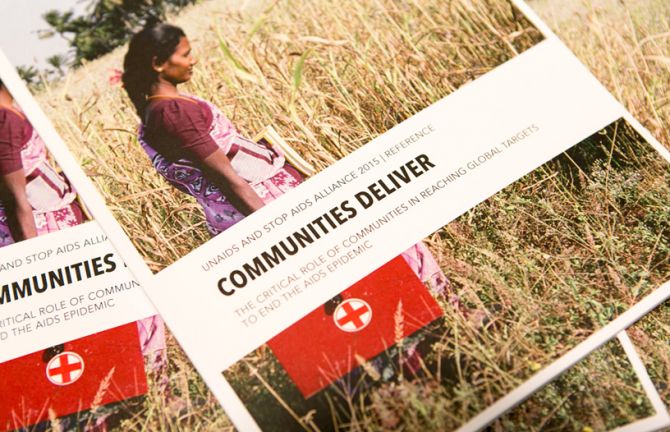
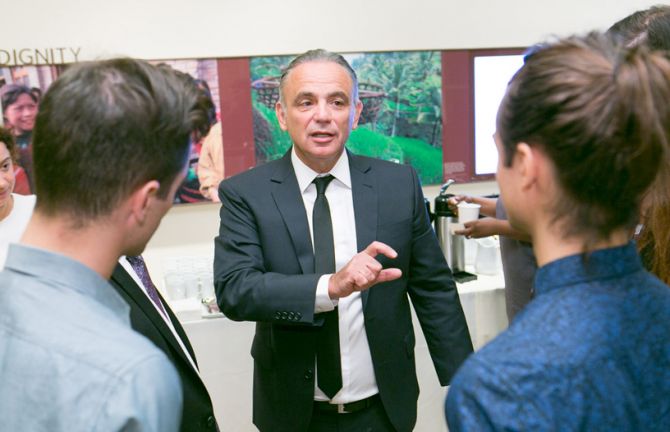
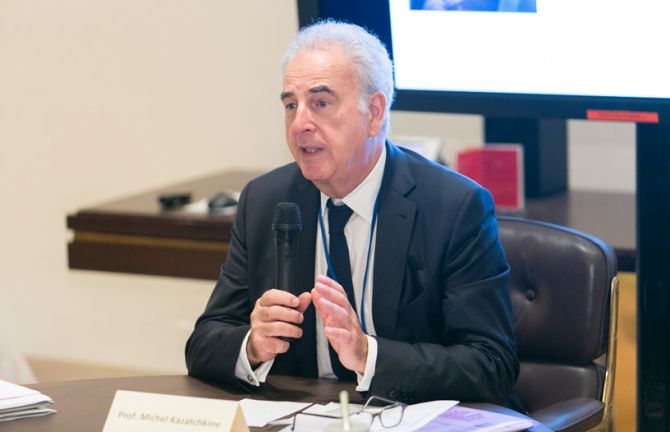
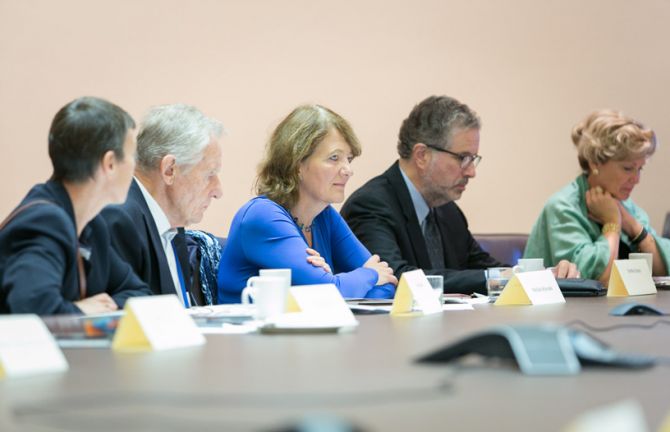
Feature Story
Robert Carr civil society Network Fund receives financial boost at top-level event
29 September 2015
29 September 2015 29 September 2015An active, vibrant and committed civil society has been the mainstay of the global AIDS response for more than three decades and its role is set to become even more critical with the advent of the Sustainable Development Goals and the HIV Fast-Track agenda.
The Robert Carr civil society Network Fund (RCNF) has been committed to strengthening international civil society networks that are active in the challenge to HIV, paying particular attention to underserved and marginalized populations. At a top-level meeting during the 70th session of the UN General Assembly in New York on 29 September, supporters and donors got together to ensure that the fund is replenished and can continue its vital work.
Co-hosts UNAIDS Executive Director, Michel Sidibé and US Global AIDS Coordinator, Ambassador Deborah Birx, joined the Fund’s Chair Michel Kazatchkine and other participants.
Mr Sidibé stressed that community-based organizations were the engine of the AIDS response, engaging in advocacy and research, delivering quality services and reaching people left behind. “Civil society helped break the conspiracy of silence on AIDS. It’s the watchdog, pushing for results,” noted Mr Sidibé. “In this new phase of sustainable development, linking work for healthy people and a healthy planet, we need civil society to advance accountability and ensure shared responsibility. The Robert Carr Fund has shown we can reach all people, and that we can build the political commitment we need.”
The achievements of the RCNF were showcased throughout the meeting, and several participants representing marginalized communities spoke of how they have benefited. These included the AIDS Rights Alliance of Southern Africa’s Felicita Hikuam and Gai Gurung from Thailand’s Youth Lead.
“By working at the regional level we strengthen the capacity of community-based grass roots groups to implement services, to monitor targets, and identify gaps and advocate to address those gaps,” said Ms Hikuam. “Robert Carr was clear about not working in silos. With support of the Fund we are able to work across sectors to build solidarity and move issues forward together,” she added.
Ambassador Birx announced the US Government’s new contribution of USD 10 million to the Fund. “These are the regional organizations that give hope to people at the grass roots. Let’s not underestimate the power of the individual in tackling AIDS. That’s what these community groups are about, standing up to governments and demanding more. Resources from the Fund are about lifting up human beings,” said Ms Birx.
The Fund is named in memory of Jamaica’s Dr Robert Carr who played an integral part in furthering the AIDS response and protecting human rights in inadequately served populations on a national, regional and global level.



